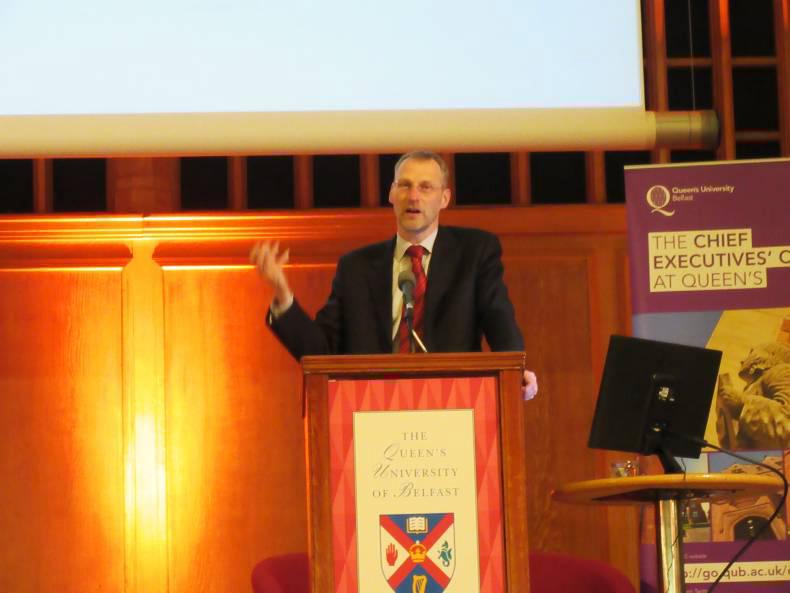The implications of a UK withdrawal from the EU are significantly greater for NI compared with the rest of the UK and in particular for the agriculture industry, maintained speakers at an event on the economic effects of Brexit at Queen’s University Belfast on Tuesday evening.
Edgar Morgenroth from the Economic and Social Research Institute in Dublin said that across UK regions, NI has the highest proportion of exports going to the EU, at around 60%, with over half of these going to the Republic of Ireland.
“If you are involved in trade, then Brexit would be a bad thing. Whatever trade agreement would be put in its place will be worse,” he said.
Morgenroth maintained that existing trade agreements with the EU such as the Norwegian or Swiss models would not work for the UK as they would not be palatable for Euroscpetics or some member states and that a new unique trading agreement would have to be developed.
“The agri-food industry across the island is the most integrated across industries. Outside of the trade agreement the EU has with Norway, no agreement exists currently that covers agricultural products,” he said.
With significant quantities of NI milk going to the Republic for processing, Morgenroth said that it was not something that happens in other parts of the UK meaning it could easily be forgotten in negotiations, which would lead to trade tariffs.
He said that the majority of independent studies forecast a reduction in trade and gross domestic product (GDP) post-Brexit and pointed to a report by the London School of Economics that predicts UK GDP would drop by between 2.2% and 9.5%.
In a panel discussion afterwards, chief economist at PwC Esmond Birnie was a little more reserved in his analysis pointing out that the economy would grow at a slower rate, but would not necessarily become poorer.
He said that Brexit could allow the UK to revert to traditional policies of liberal trade agreements. However, he talked about a government “dilemma for the producer sector” and whether government would seek to protect UK farmers by imposing import tariffs in trade agreements. He also questioned the sustainability of EU subsidies.
Most of the panel recognised the importance of subsidies in supporting farm incomes, but acknowledged that CAP was not ideal in its current form.
Dankse Bank chief economist Angela McGowan also questioned the argument to leave the EU to reduce regulations. “Very often, regulations can make us become more productive. This can be applied across sectors, such as in the environment with recycling waste in industry leading to reductions in inputs,” she said.






 This is a subscriber-only article
This is a subscriber-only article











SHARING OPTIONS: